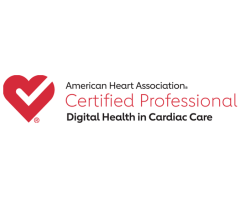
December 29, 2016 — Cardiologists are highly satisfied in their careers; however, disparities remain between the career experiences of men and women, according to the American College of Cardiology's third Professional Life Survey recently published in the Journal of the American College of Cardiology (JACC). The ACC has conducted the Professional Life Survey every 10 years since 1996 to capture how changes in cardiovascular medicine have impacted the experiences of cardiologists in both their personal and professional lives.
This year 2,313 cardiologists, including 964 women and 1,349 men, completed the survey, which was led by the ACC's Women in Cardiology Leadership Council. The survey aimed to define current workforce demographics and career choices, determine levels of career satisfaction, identify family and professional barriers to success, and pinpoint areas of concern to guide the College in development of initiatives with high member value.
Overall, cardiologists are very satisfied with their work lives, with 88 percent of women and 90 percent of men reporting being moderately to very satisfied. Over 60 percent of men and women were also satisfied with their financial compensation. Women were much less likely, however, to report achieving a higher level of advancement compared with their peers. Career satisfaction for women has risen from 80 percent in 1996, but the levels of women reporting slower advancement has remained the same. Career satisfaction levels for men have remained unchanged over the past 20 years.
Women are still choosing cardiology at much lower rates than other specialties. In 2013, 13 percent of cardiologists were women, compared with over 35 percent of internists, over 30 percent of hematologists/oncologists, 18 percent of general surgeons and over 50 percent of obstetricians/gynecologists.
"We need to increase the diversity of our workforce, and find ways to recruit higher numbers of women and underrepresented minorities," said Claire Duvernoy, M.D., FACC, senior author of the paper and chair of the ACC Women in Cardiology Council. "While we are heartened by the finding that the vast majority of cardiologists, both men and women, report high levels of career satisfaction, it is clear that much remains to be done to improve the field for everyone."
The percentage of women reporting discrimination has declined in the past 20 years from 71 percent to 65 percent; however, the percentage of women reporting some form of discrimination in the workplace is still at a rate almost three times as high as men. Women were more likely to report discrimination based on sex and parenting, while men were more likely to report racial and religious discrimination.
"We must work to change the culture that allows this to occur in our field," Duvernoy said.
The survey reflected a large shift in how men view family responsibilities, with men now significantly more likely to report that family responsibilities negatively affect their careers than they were 20 years ago. According to the authors, this may reflect the fact that men are accepting and shouldering different roles in their families than they were previously.
However, women in cardiology are still just as likely today to not marry as they were 20 years ago and remain much less likely to marry or to have children than men in cardiology.
In addition to sex and family issues, the survey shows that over the past 20 years, the workforce is aging, with a greater percentage of practicing physicians who are over the age of 60 compared with 10 and 20 years ago. Cardiologists are also increasingly leaving private practice. The percentage of cardiologists working in a private practice setting has decreased from 73 percent in 1996 to only 23 percent today.
Duvernoy said the issue of aging physicians must be addressed by "finding ways to improve the pipeline of new cardiologists."
Some limitations in the survey include that response rates were lower than in prior surveys and the possibility that the experiences of nonresponders may differ substantially from those of responders. The survey also was only sent to domestic ACC members, who represent over 85 percent of U.S. cardiologists, but not the entire community.
The authors do not have relevant disclosures to report.
For kore information: JACC.org


 November 14, 2025
November 14, 2025 









